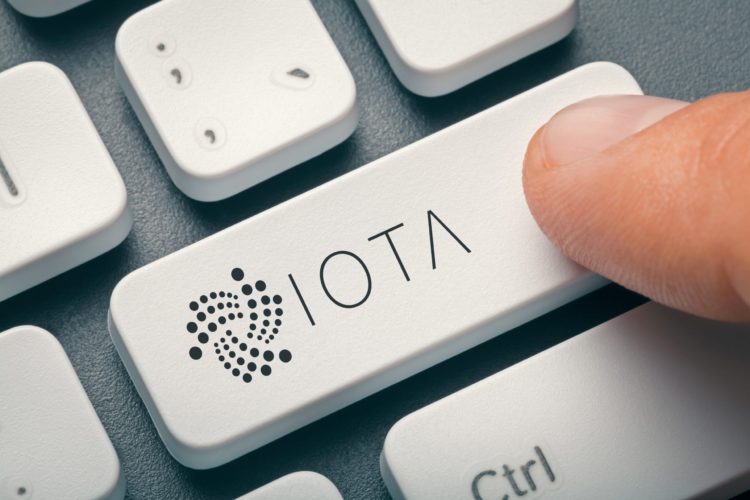- Dominik Schiener calls for more support at the political level so that innovations like IOTA can become a global market leader.
- Matthias Hauer, Member of the German Parliament for the CDU, acknowledges the “plus points” of IOTA compared to the competition.
In a roundtable discussion with German politicians, Dominik Schiener, co-founder of the IOTA Foundation, took questions from Nils Josef Hofmann (Junge Union), Gabriel Theis (Junge Union), as well as the Members of the Parliament Matthias Hauer (Committee for Digital & Finance) and Klaus-Peter Willsch (Committee for Economy). The central topic was the potential of blockchain and the challenges it currently faces.
On the latter, Schiener stated that Germany and Europe have the potential to set standards. This has been demonstrated by the introduction of the General Data Protection Regulation (GDPR), making Europe a pioneer for data protection worldwide and giving rise to new business models, companies and startups. The blockchain or DLT industry also holds this opportunity, Schiener said:
And the same is true for blockchain technologies, and especially of course for IOTA, where it is now a matter of supporting these technology approaches in such a way that they really become world market leaders as well, and are supported at the political level. I believe that this is something we are still lacking the most today – this support from politics, I believe the economy is already behind it […],
From politics, Schiener expects a clear and legal regulatory environment, with Germany and Europe already “on a good path.”
[…] and of course it is also about creating this environment, where it is about supporting innovations. […] I’m a big fan of “digital sandbox”, where you have a test environment, where you implement pilot projects on the one hand and then test them in the real world […] where you really find out whether it solves the problem or not. I believe that this creates a lot of trust in these new technologies […] and I believe that much more can be created, and especially here in Germany and Europe, because many companies are also based here.
Politicians recognize the importance of digital identities
Nils Josef Hofmann addressed the use case of digital elections and asked Schiener about his position on feasibility. Schiener explained that he has been intensively studying the topic of elections on the blockchain over the last few years. However, this is a complex topic that presents some challenges, as demonstrated by the system already in place in Estonia. Ultimately, Digital Identity, a core project of IOTA, is always the linchpin, he said:
The exciting thing is: all use cases actually start and end with Identity, meaning digital identity. We always say ‘it’s the holy grail’, because that naturally creates trust, […] We are a project that focuses strongly on that.
Matthias Hauer, who sits on the Committee for Digital Affairs & Finance in the German Parliament, confirmed Schiener’s opinion and explained that the implementation of digital elections is quite conceivable:
The topic of digital identities naturally plays a major role there, because in the end it’s always about fending off attacks and clarifying legitimacy. And once these points have been clarified, I can imagine all of this.
According to Hauer, a lot is already happening at the federal policy level. For example, he said, the federal government is in favor of a European ecosystem with digital identities, “where a wallet is implemented, where, for example, the ID card, credit score information, salary statements can be accessed directly.” With regard to IOTA, Hauer praised its competitive advantages over its rivals:
And there’s good opportunities there through IOTA, of course. When I see, for example, that this is open source with a view to decentralization, feeless, also with a view to power consumption, then these are once again plus points for IOTA in this competition, from my point of view.
Credit: Source link












































































































































